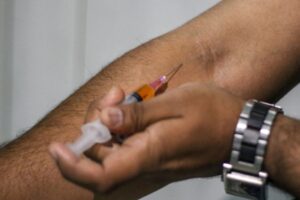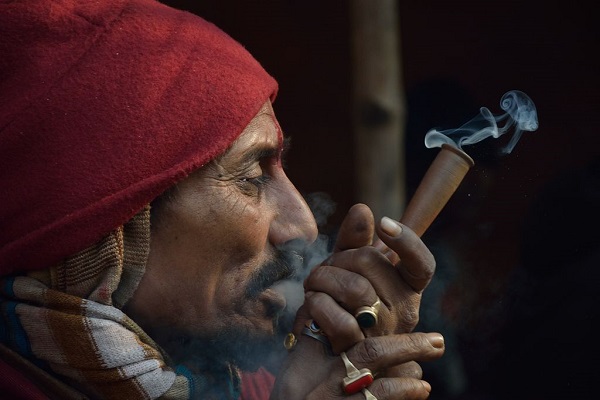Drug addiction a disease, not an identity
The road to recovery for drug addicts is already a perilous one, aggravated by physical pains of withdrawal and mental agony. In India however, it is made worse due to familial and social stigma that leaves addicts fighting for their life while being completely isolated from their loved ones.
“If it is treated as a disorder, there will not be a prejudice. But instead of support, people who don’t know about the subject are busy giving feedback saying they are non-cooperative, labelling, stigmatising, so people who are addicted get even more depressed without support and they continue to drink or do drugs,” Girish Kurra, founder and director of Umeed Wellness Centre, a rehabilitation centre for drug and alcohol addiction in Delhi, tells Media India Group.
Often, this is simply because people do not have the necessary knowledge to help or understand the science behind addiction, or even how serious it actually is in India. The theme for International Day Against Drug Abuse and Illicit Trafficking for 2021 is ‘Share Drug Facts to Save Lives,’ which is aimed at combating misinformation and finding solutions to the global drug problem through prevention and rehabilitation.
Ministry of Social Justice and Empowerment of government of India conducted the first National Survey on Extent and Pattern in India in 2018 and found that “more than 57 million individuals are affected by harmful or dependent alcohol use, about 2.5 million suffer from cannabis dependence and approximately 7.7 million individuals need help for their opioid use problems.”
Kurra explains that what families do not understand is that recovery is not simply dependent on willpower. Patients are often seen as useless persons who use drugs simply for fun or pleasure.
“It is all about compulsion and obsession; the urge is so strong and so intense that one is not able to stop it because of a chemical reaction within the body and mind. It is not the same with everybody. Emotional reactions are so intense that it can convert into self-harming as well,” says Kurra.
In India, cases have also risen during the Covid-19 pandemic. For example, in 2020, there was a 23 pc rise in number of people registered to receive de-addiction treatment in Punjab. Experts attribute this rise in demand to mental health deterioration caused by social isolation and being cooped up indoors, due to prolonged lockdowns.

Heroin users often inject the drug for a faster release, but multi-person use increases risk of HIV (MIG photos/Aman Kanojiya)
“The pandemic has been a huge trauma for all of us. To get through this, either you need counselling or you need somebody to talk to. But in our country, there is also a stigma attached to counselling, so if people are unwilling and unable to connect with others or engage in a dialogue, then they may turn to drugs or alcohol,” explains Sunil Vatsyayan, founder and chairperson of Nada India Foundation, another NGO that deals with addiction treatment.
Nada’s treatment strategy is unique in that it emphasises a peer-based, people-centred model that is supported by the United Nations Drug Control programme. At the end of the day, only a drug addict can truly understand the mental stress of rehabilitation, and Vatsyayan believes that if they are able to help each other, this will allow for more long-lasting, self-sustaining recovery and help prevent future relapses.
“Often, the patients’ voices are not being heard. It is the therapists and doctors who decide what’s best, but we never ask the patient what they need. All health facilities should be available and accessible, but should be acceptable also,” says Vatsyayan.
An especially worrying concern in India is the growing number of minors who are becoming addicts. According to a study conducted by the National Commission for Protection of Child Rights, the most common form of substance abuse amongst adolescents is tobacco and alcohol, followed by inhalants and cannabis.
“Addiction often starts in adolescence, and because it is a chronic disease it continues into adulthood and causes health problems. Nowadays, there is a culture among young people and marijuana is seen as something ‘cool’ but what they don’t realise is that it can be a dangerous gateway drug. Like painkillers, tolerance eventually increases so they start to look for something else that will enhance the experience,” explains Vatsyayan.
The effect of substance abuse is highest on the psychological health of adolescents. However, with the taboo against mental health therapy in India, adolescents are often left with no one to talk to.
“Drugs are not the initial problem. They are the solution to a problem,” says Vatsyayan, explaining, “Even our education system does not give children chance to speak or participate in their own decision making. So we need to engage young people in our conversations and think about how to give them a safe space so that they can speak about themselves and their experience in a more productive way. Then they may not need drugs for that purpose.”

Despite being banned, marijuana and ganja is widely available in India (Photo: Biswarup Ganguly)
The Ministry of Social Justice and Empowerment has announced a 2020-2021 annual plan called Nasha Mukt Bharat (Addiction-free India) for the most affected districts in India, which will involve building more de-addiction centres, increasing awareness among the youth and community participation.
A study report by the Integrated Rehabilitation Centres for Drug Addicts (IRCAs) reported that out of 398 de-addiction centres across India, only 3 had female inhabitants. Despite desperate need, women are reluctant to avail of these services because of social taboos and fear of all-male staff
Vatsyayan also believes that the law should adequately protect families of drug users as well, who are adversely affected.
“Violence in the family of a drug user is very high and they always protect him regardless. It’s the mother and the wife who has been beaten and they are the people who bring them to a de-addiction centre but when it happens to them, the man does not do the same, so major gender discrimination is there. So separate centres are needed for women also,” he says.
Although Vatsyayan commends the measures taken by the government, he underscores the important role that family and society have to play, and emphasises the importance of changing misconceptions about drug addicts in Indian society.
“They’ve been identified not as a human being, but as the disease they have. They are in the last ladder of social strata despite wealth, cast, or privilege. This is the biggest barrier. In de-addiction centres the person has been treated like a patient, but once they come out, the conversation becomes, ‘Oh, you are a drug user, so we must keep you away from us because you may be a thief.’ This aspect of empathy and understanding is missing in our system.” say Vatsyayan.
Outsiders may imagine that the pain and health issues associated with getting off addictive substances are the hardest parts of recovery. But Kurra also explains that the main roadblock in treating patients is not in the rehabilitation centres itself, but once the patient is back in the society again.
“Their families do not want to bring any change in their mindset. They are under the impression that they are perfect and just the person who is using is an idiot. Employers also think that drug users are entirely dysfunctional and they do not want to give them a chance to recover, don’t want to train them. Once they come to know they have a history of alcohol abuse or drug use, they only focus on that and immediately reject them,” says Kurra.
Because of this social stigma and discrimination by families and employers, a lot of addicts do not get the chance to rebuild their lives and integrate back into society even after the arduous journey of recovery. Awareness programmes initiated by NGOs and government schemes will hopefully help clear misconceptions about these people who, experts say, should not be defined by the disease they have, but be treated as human beings with proper rights.









